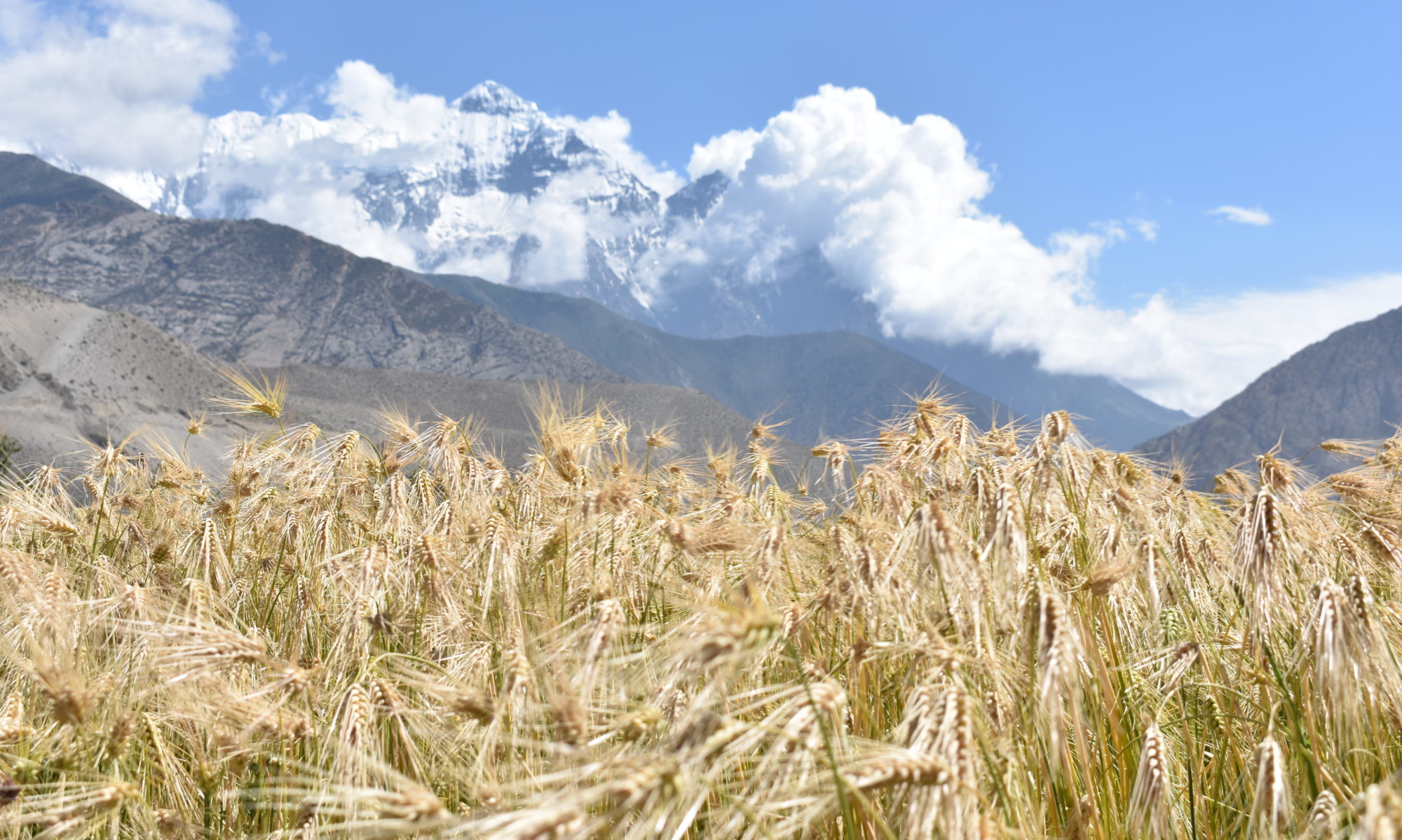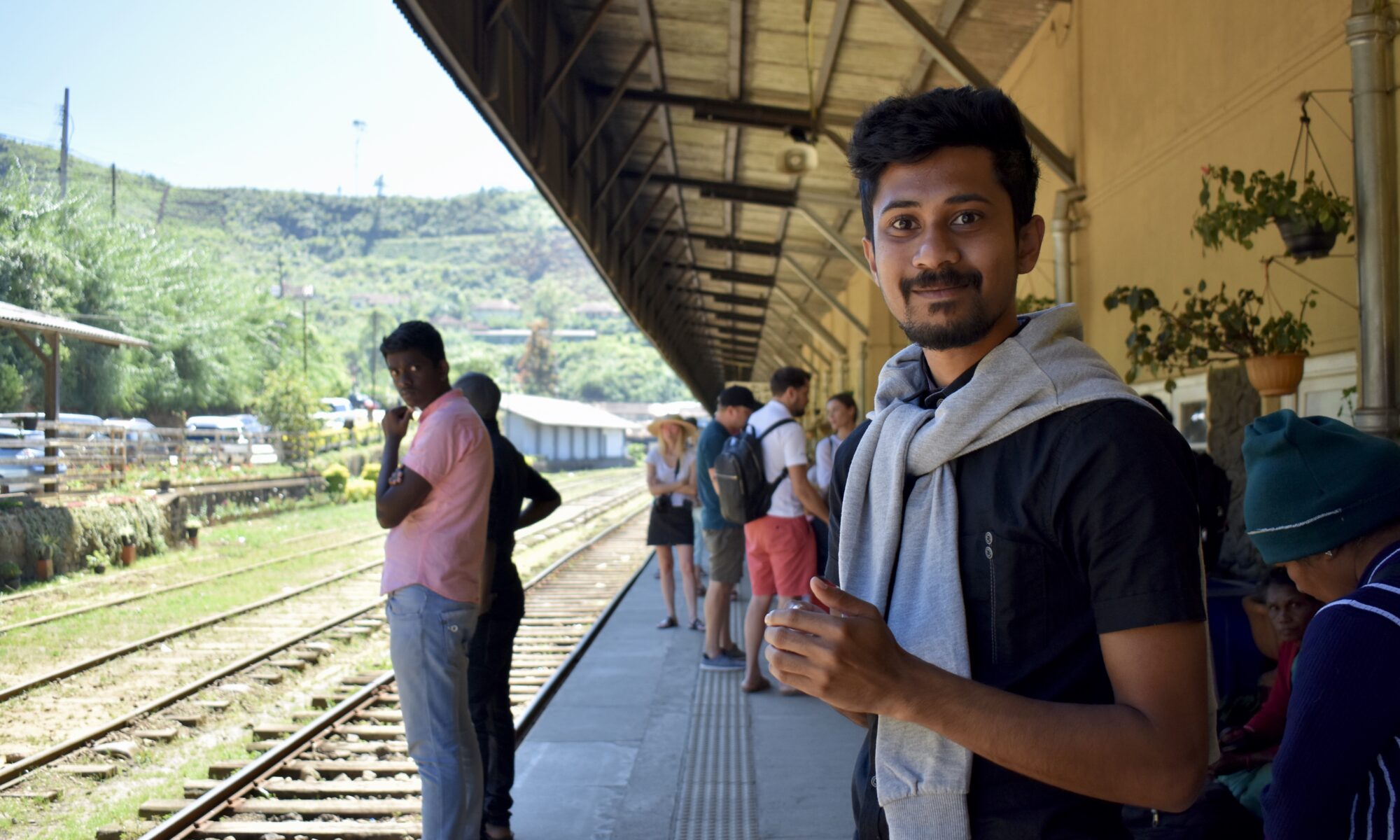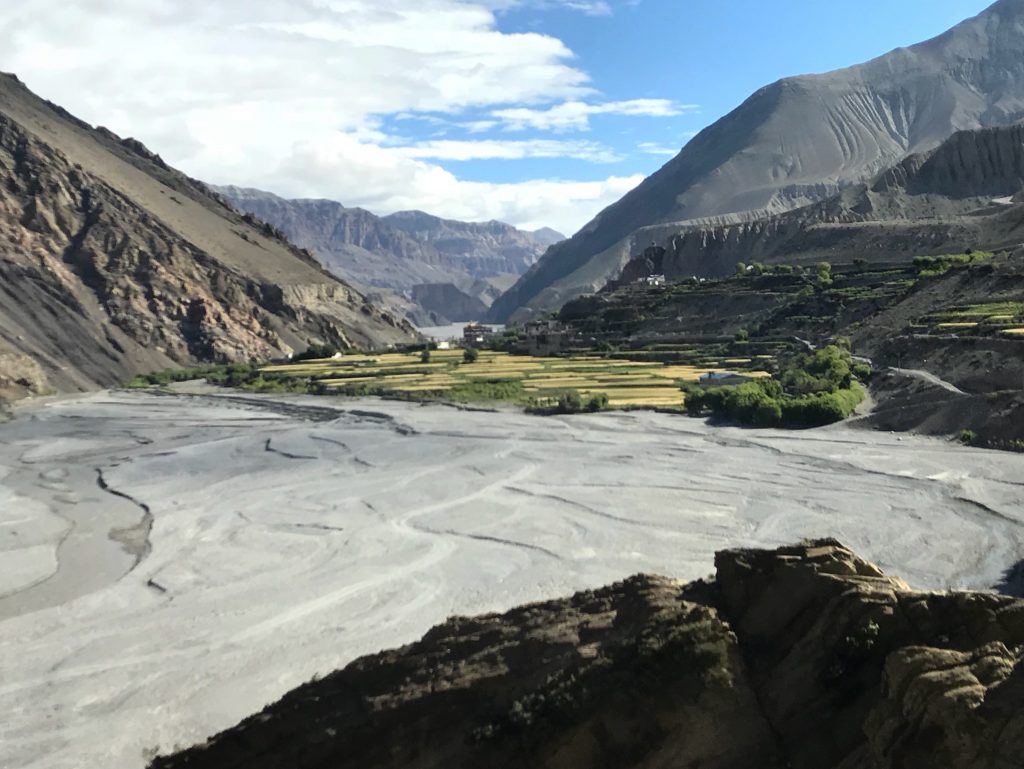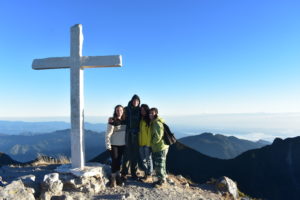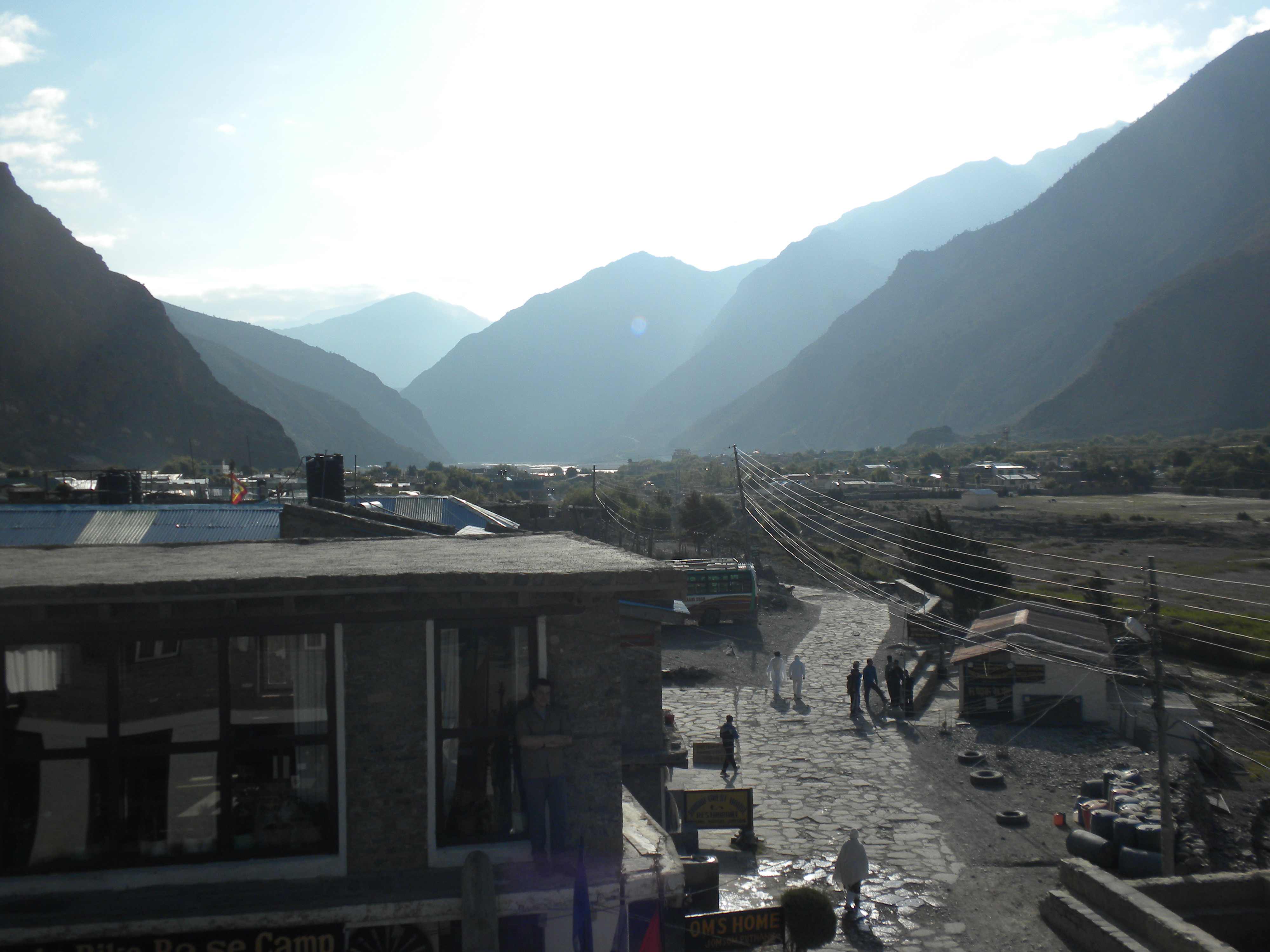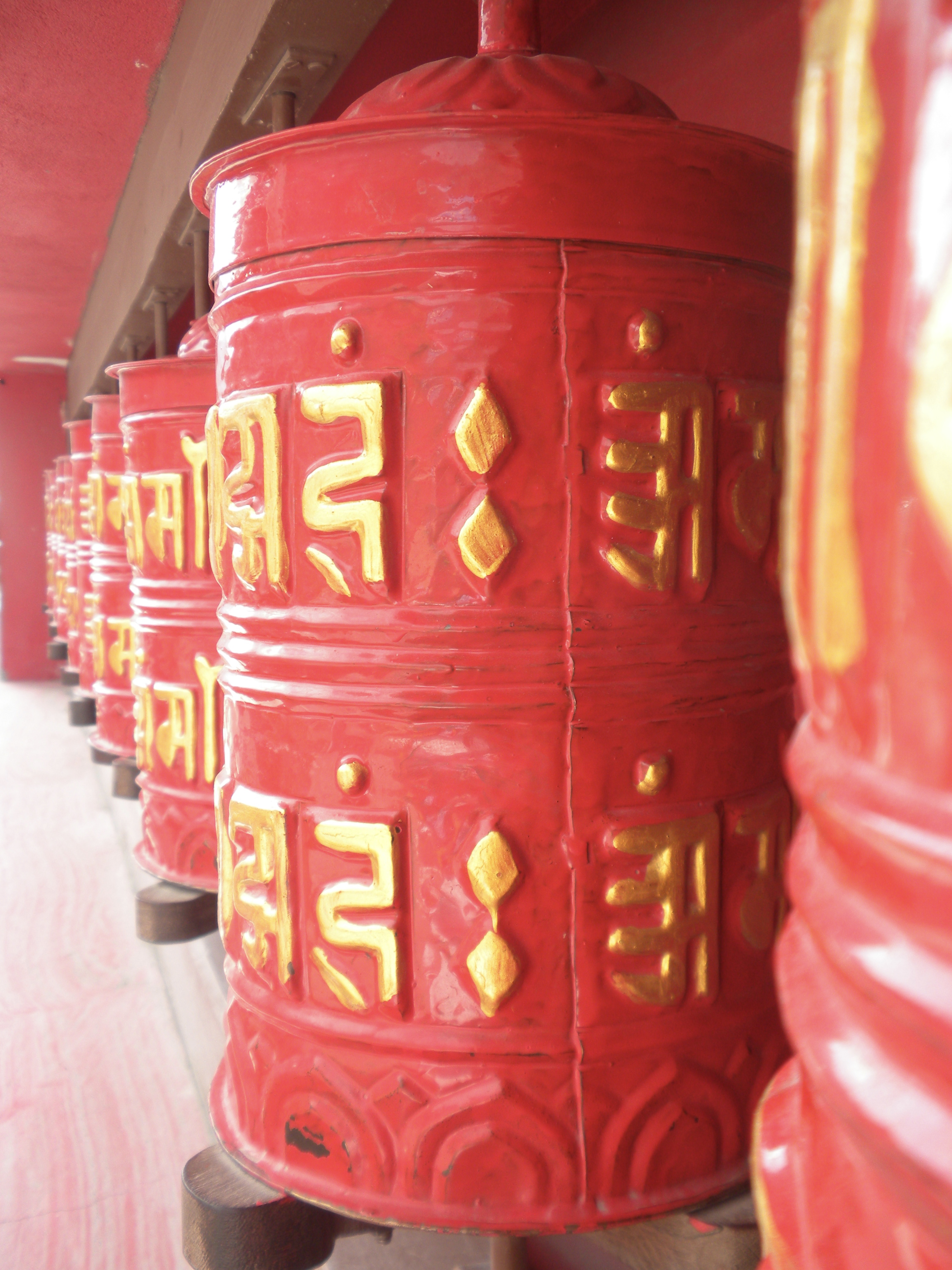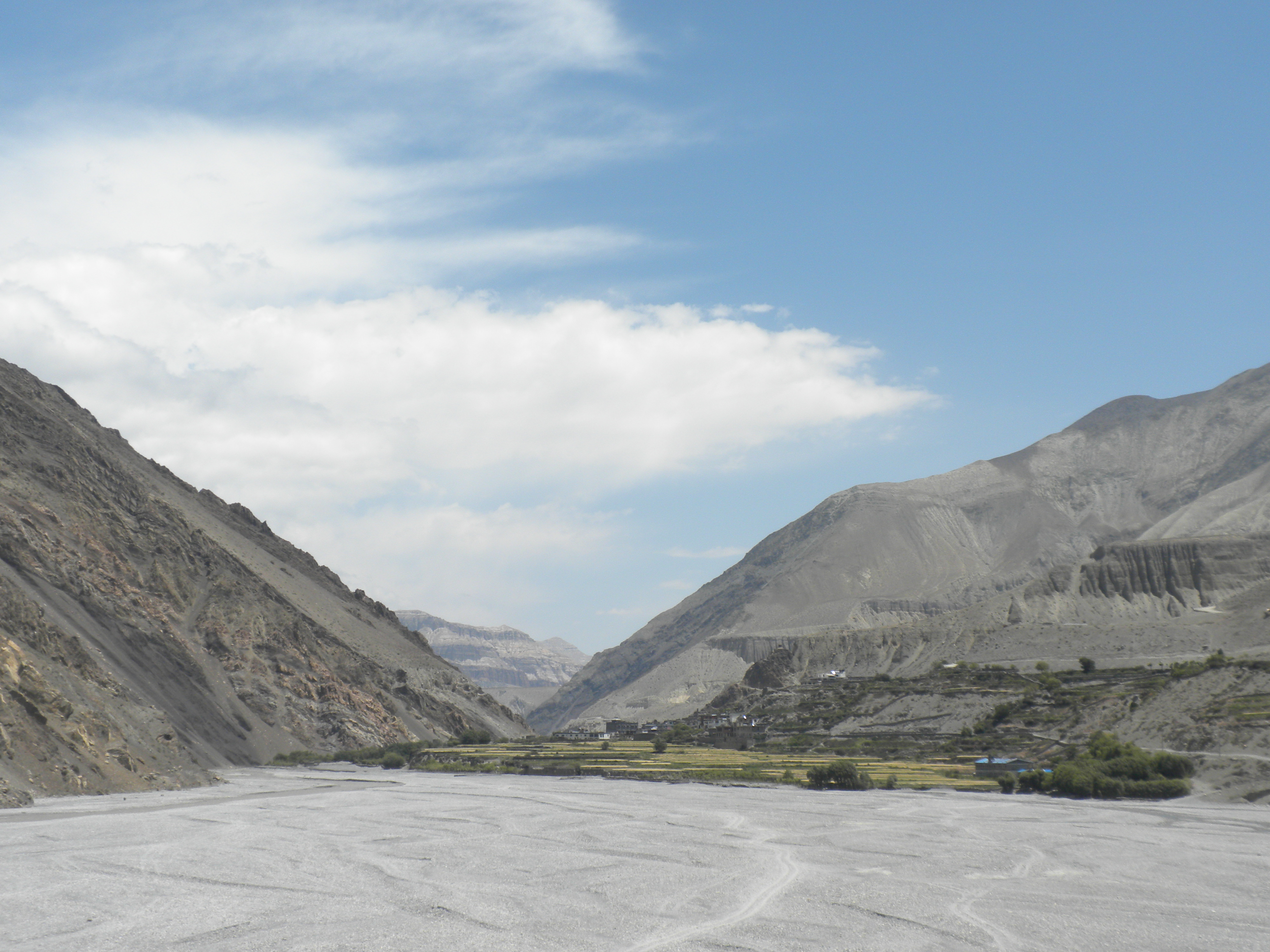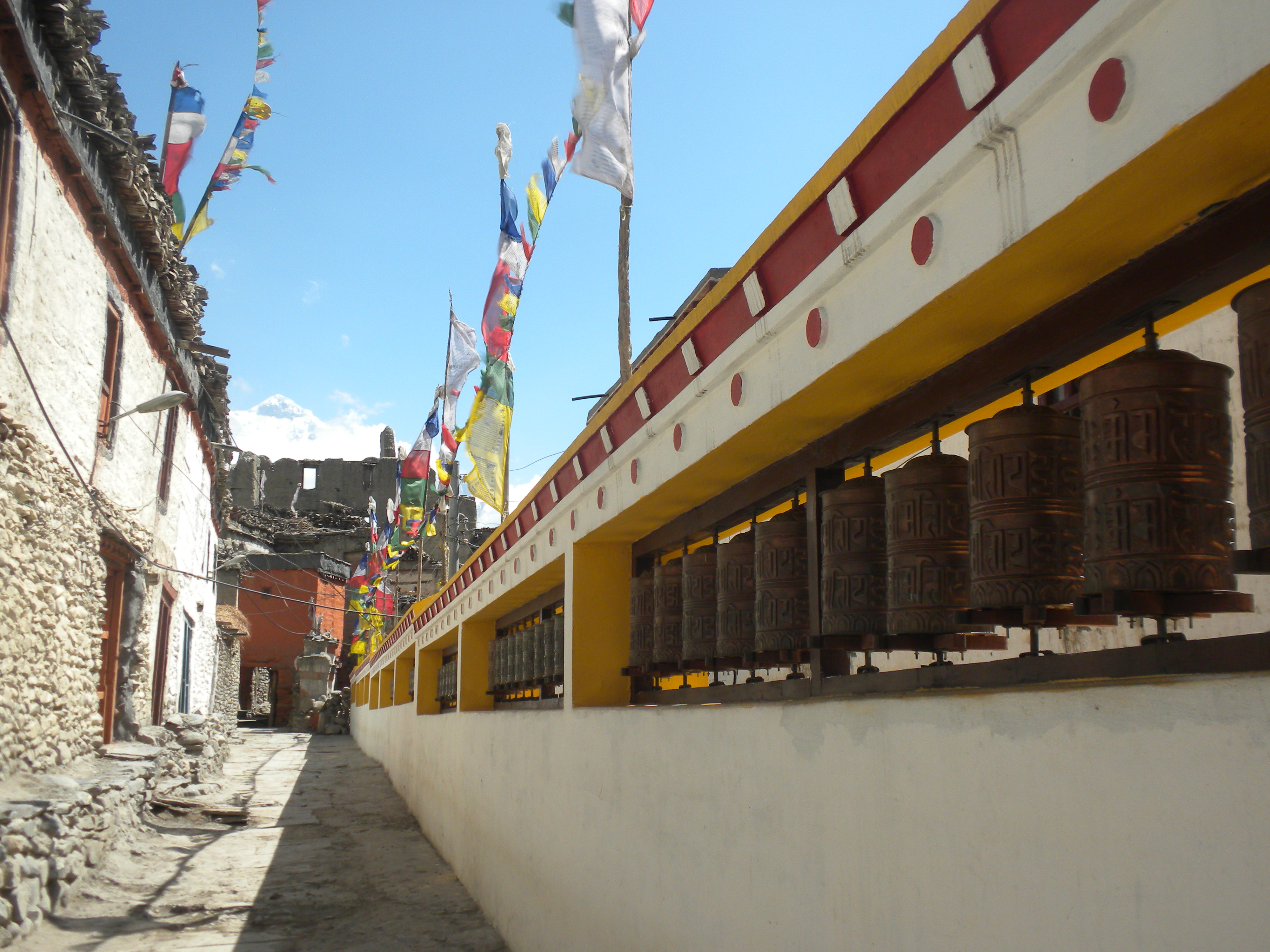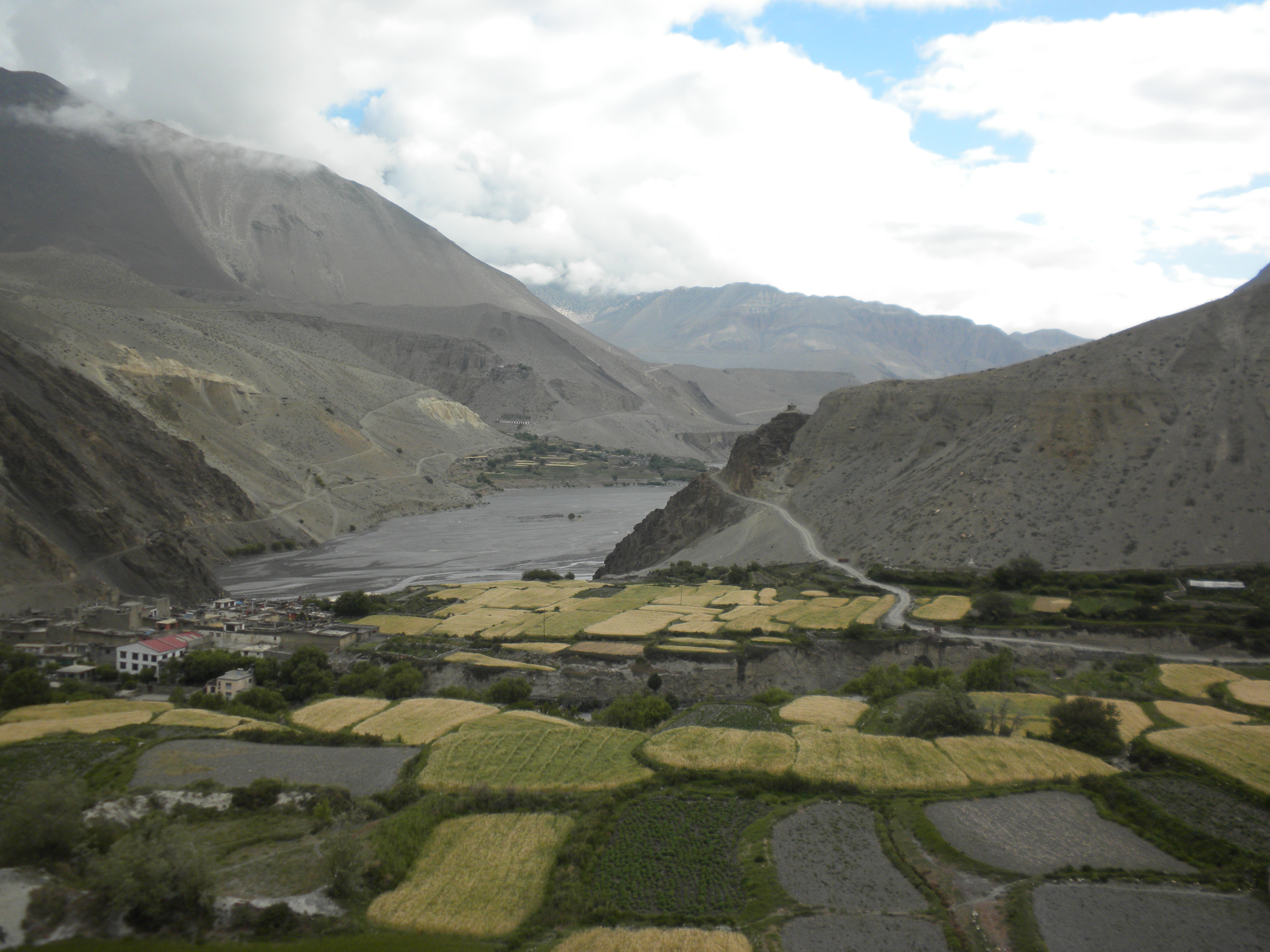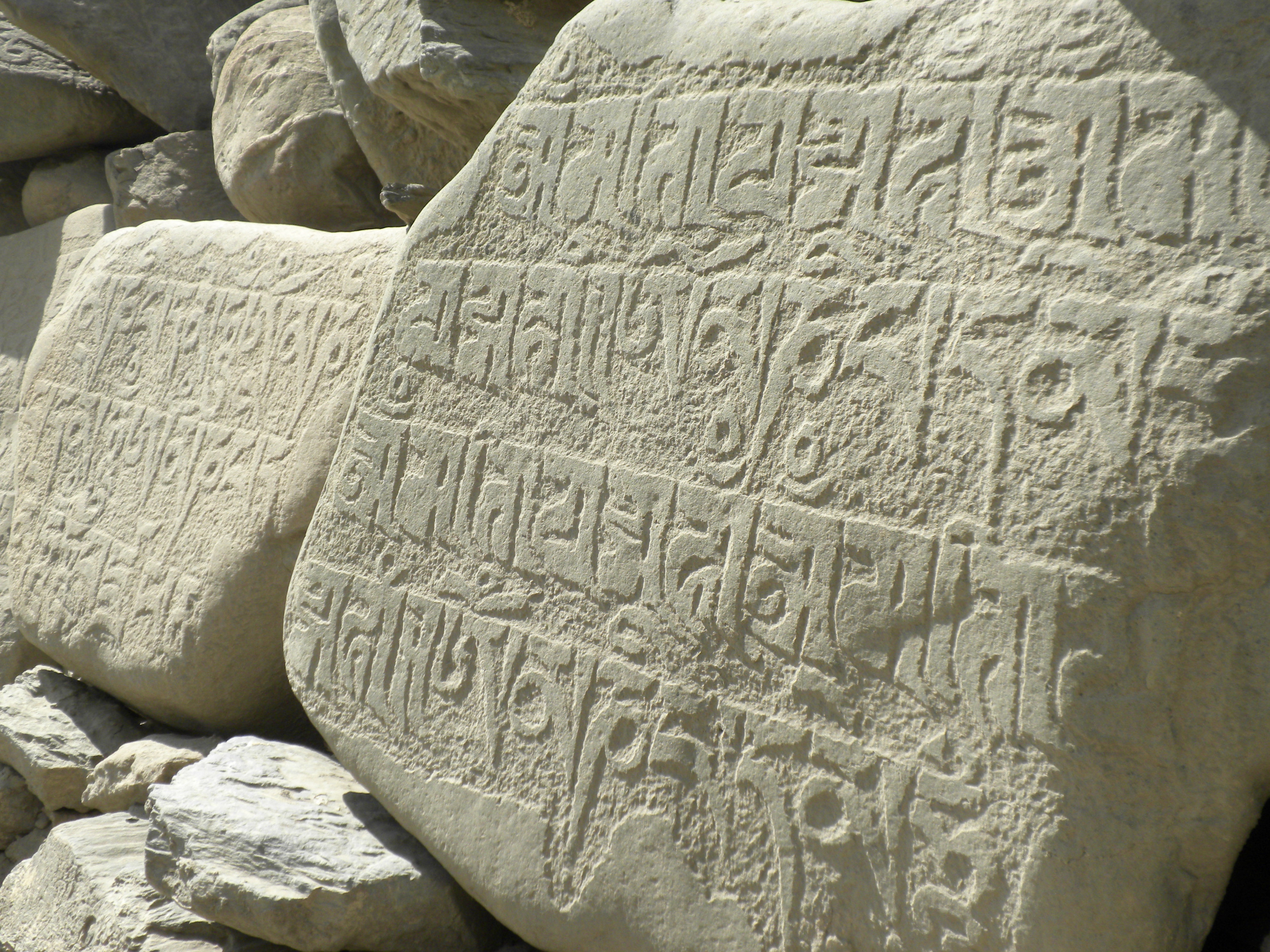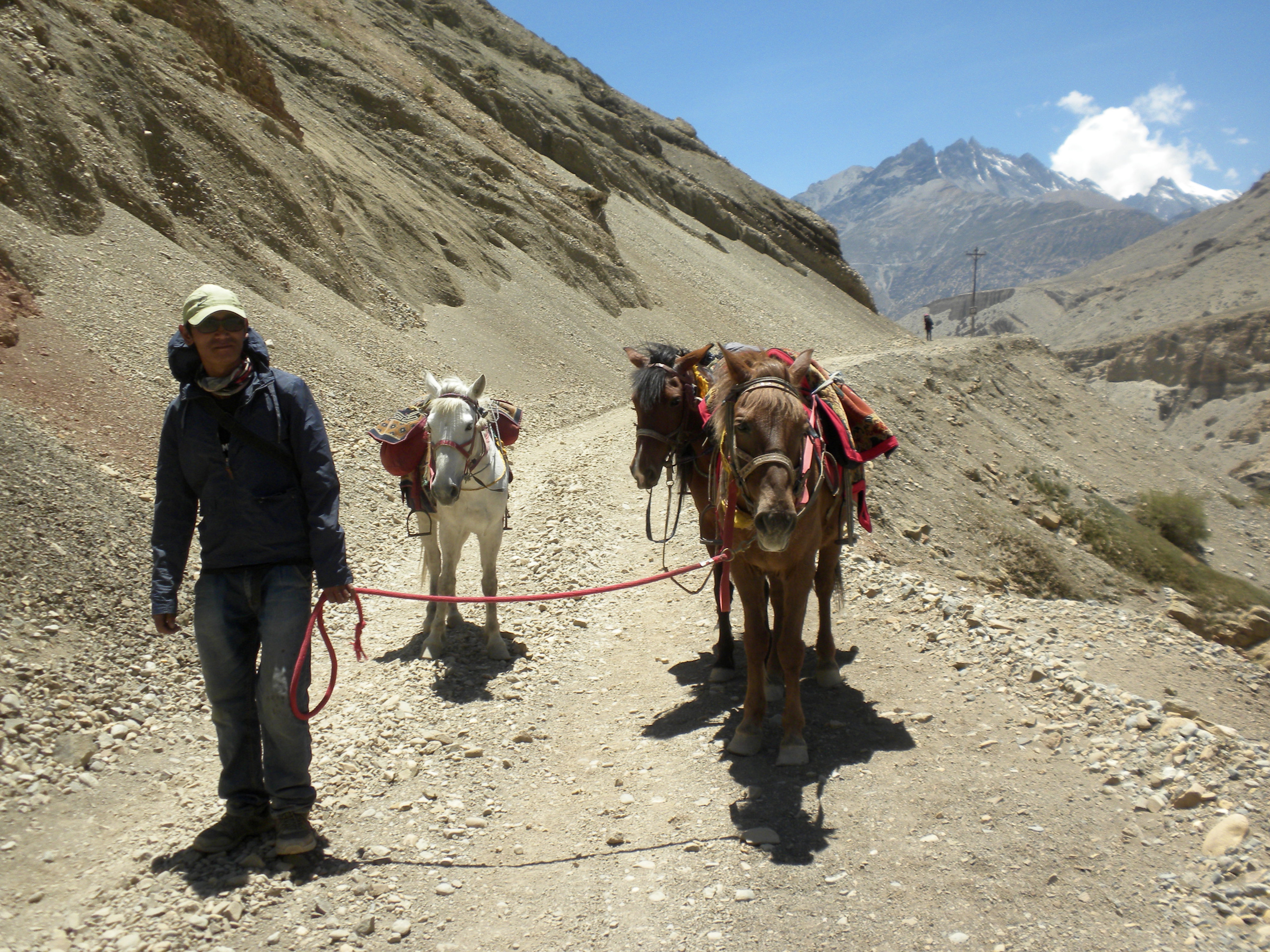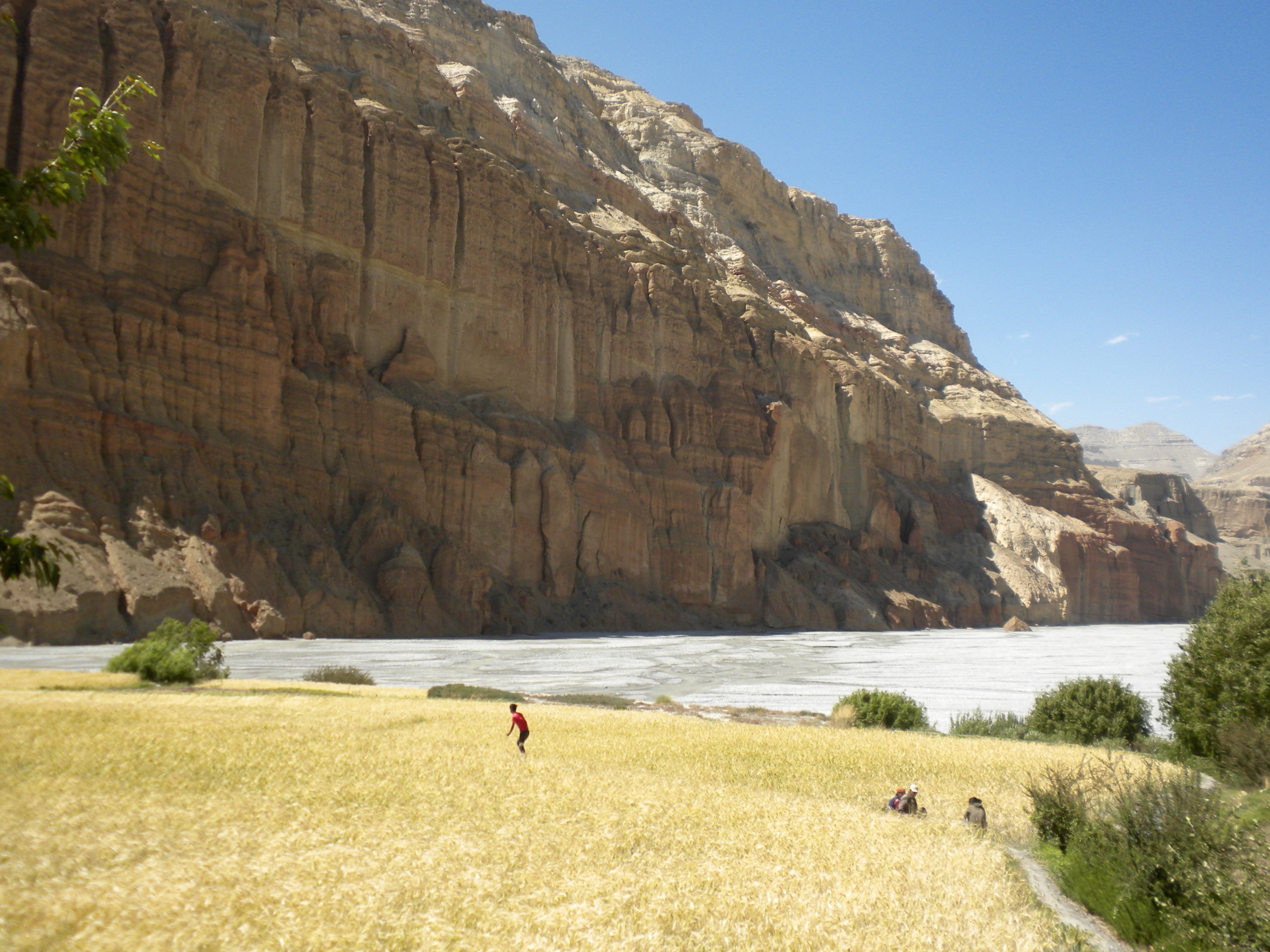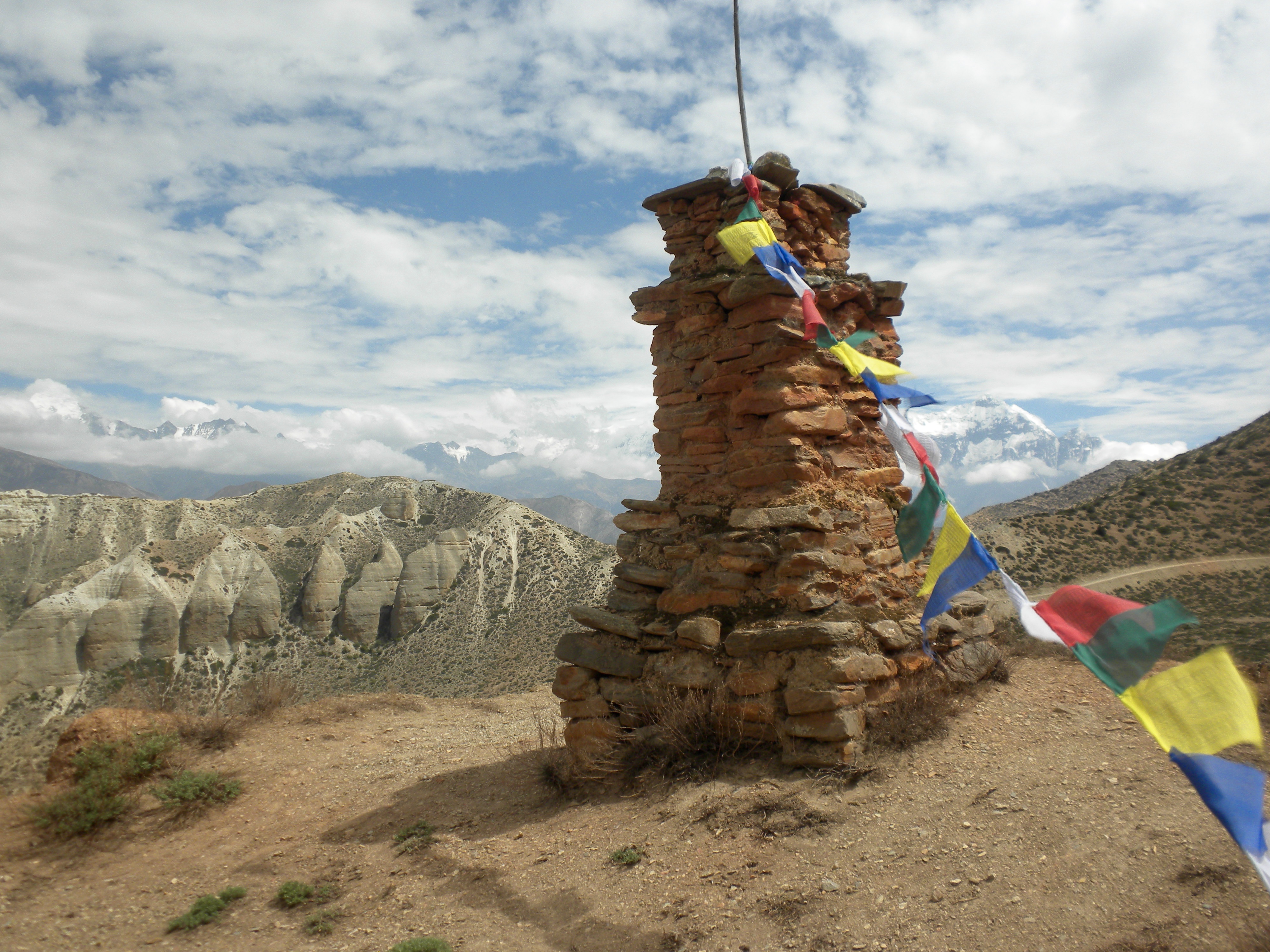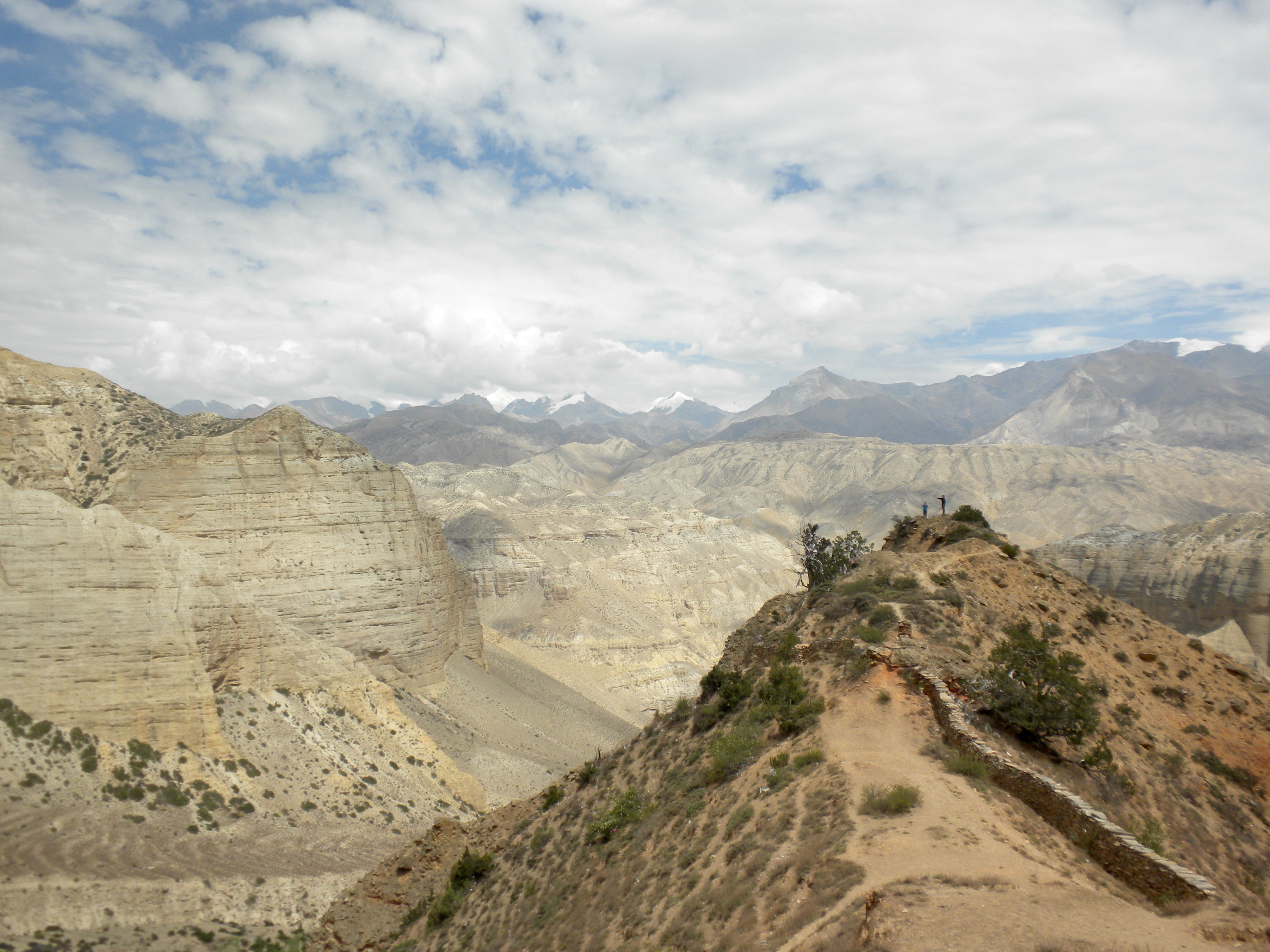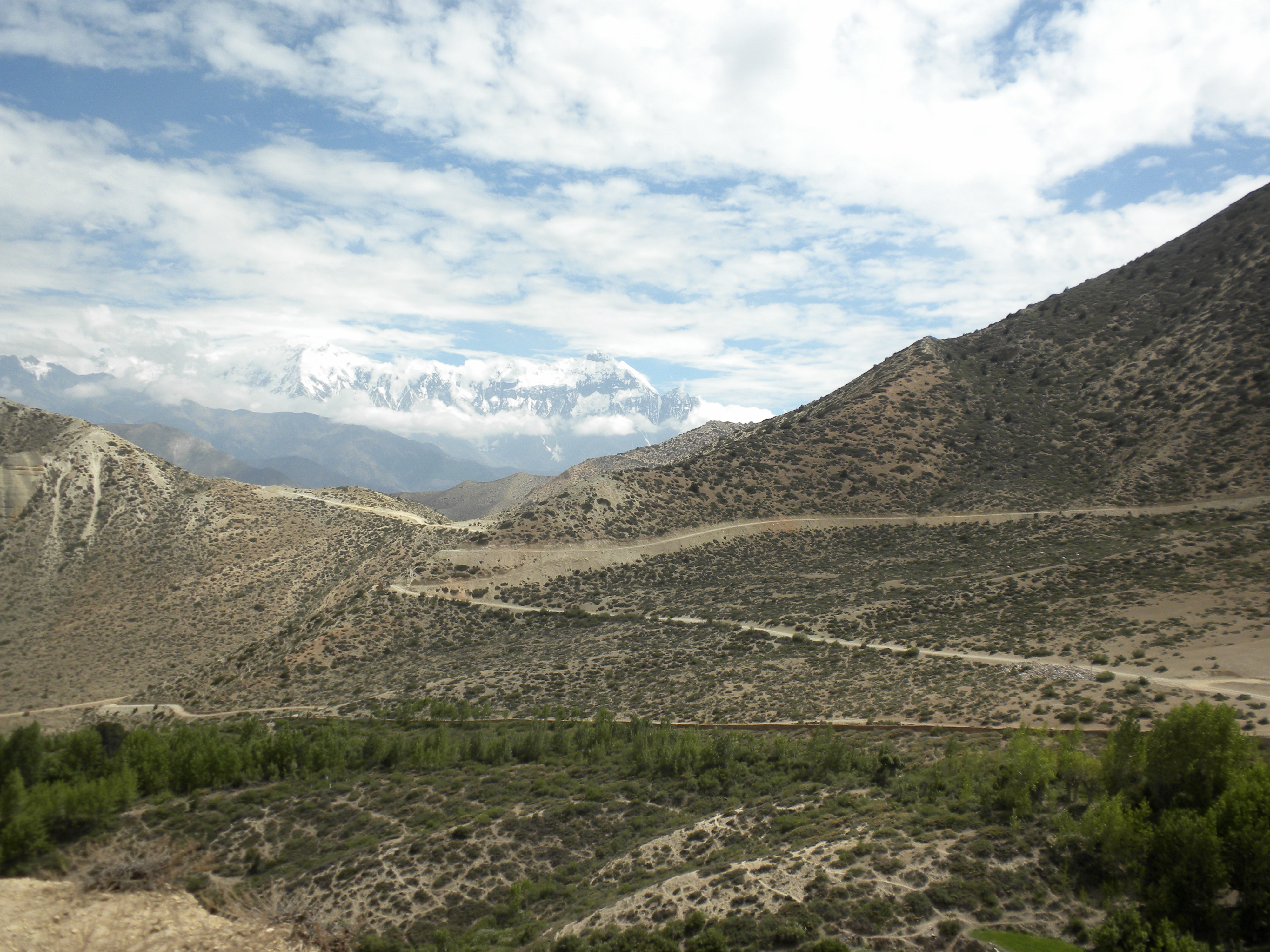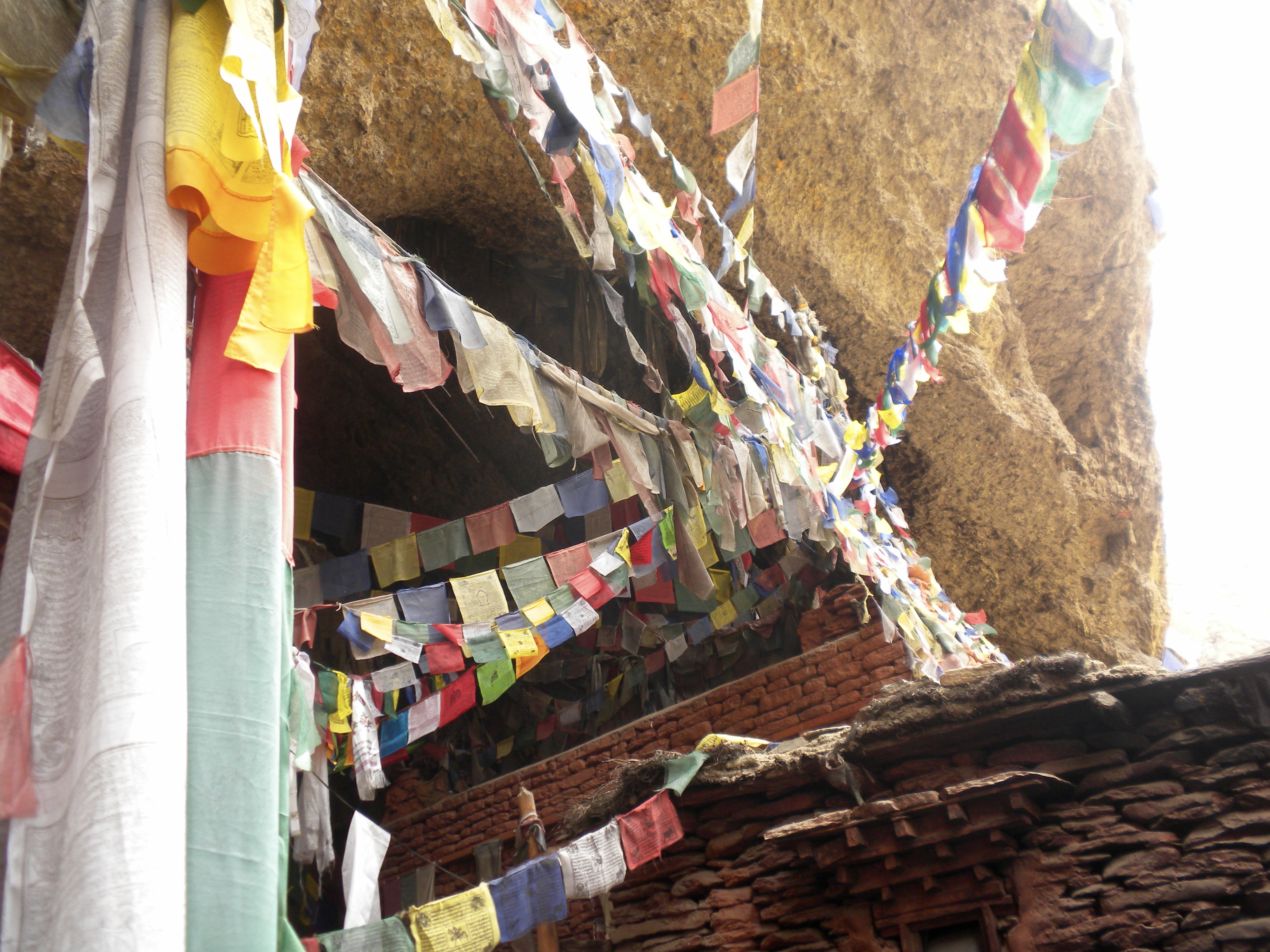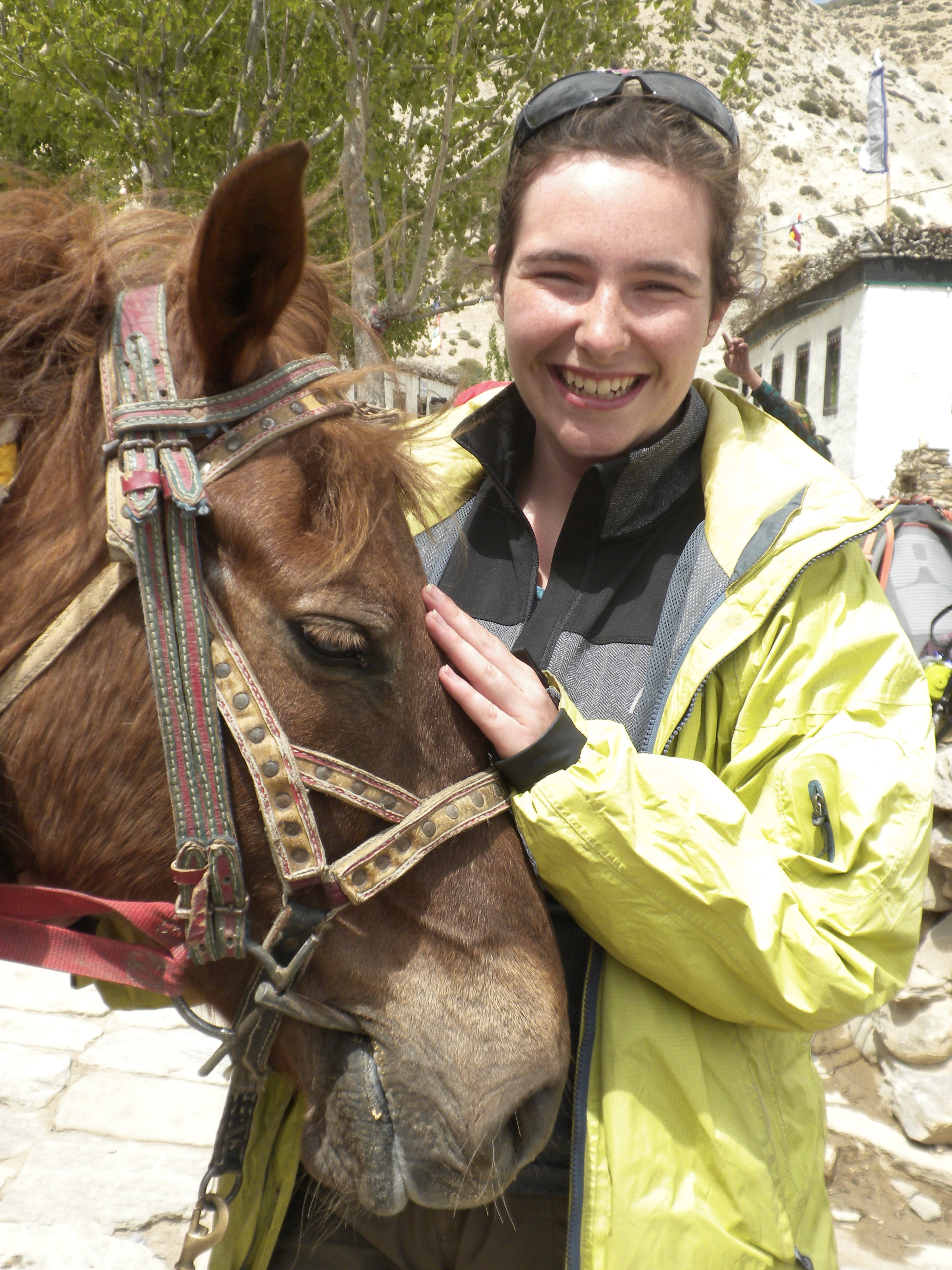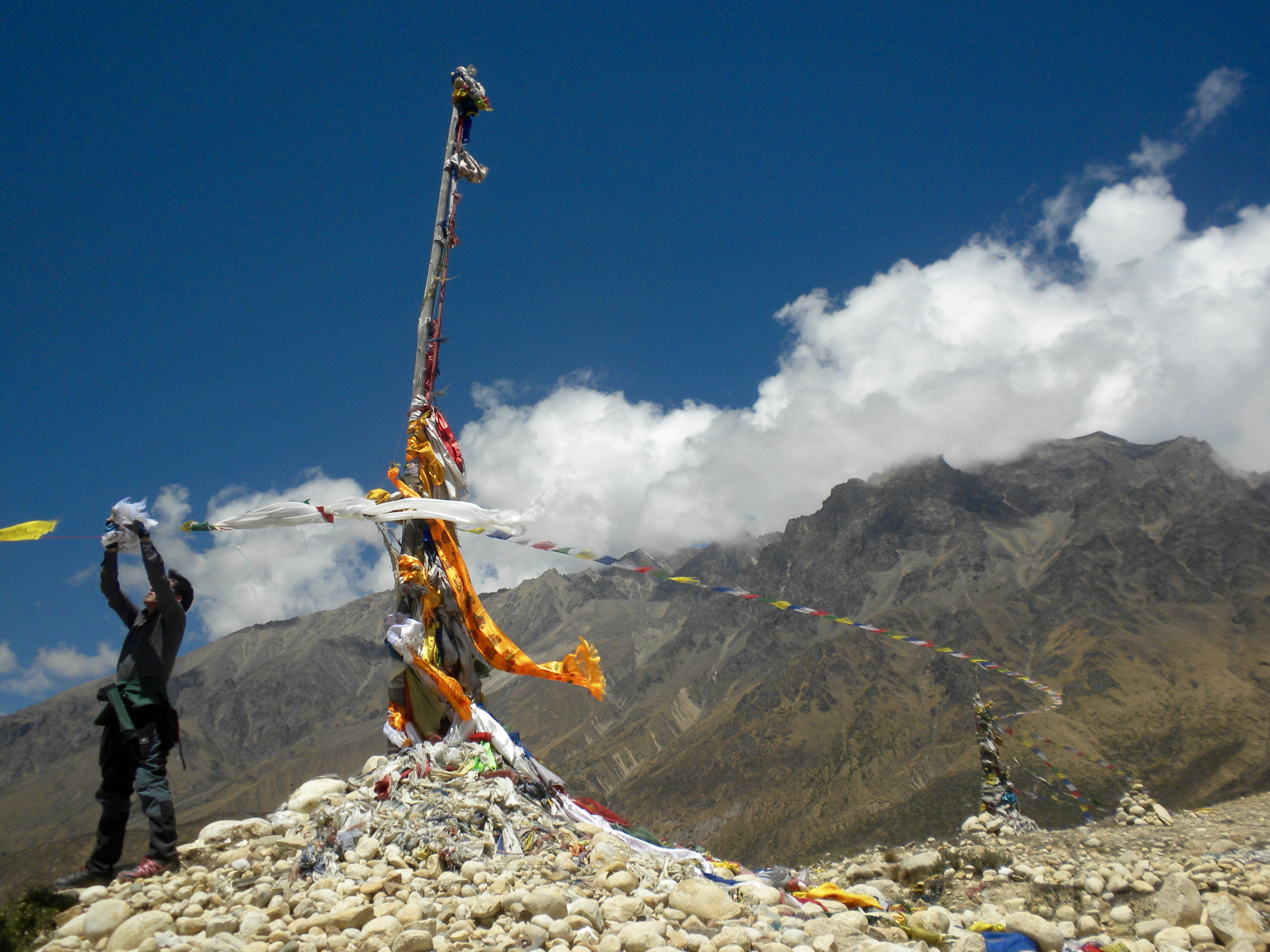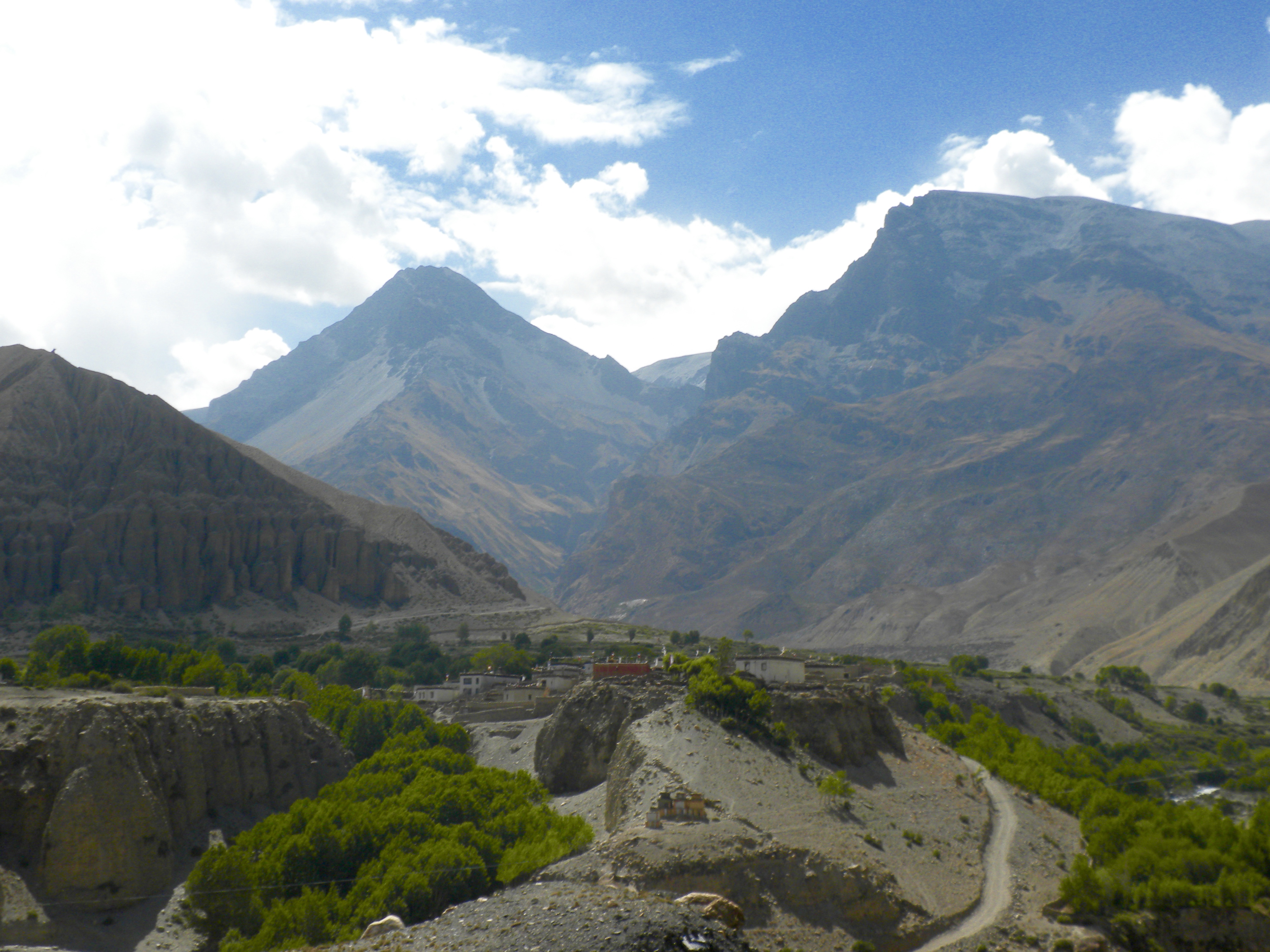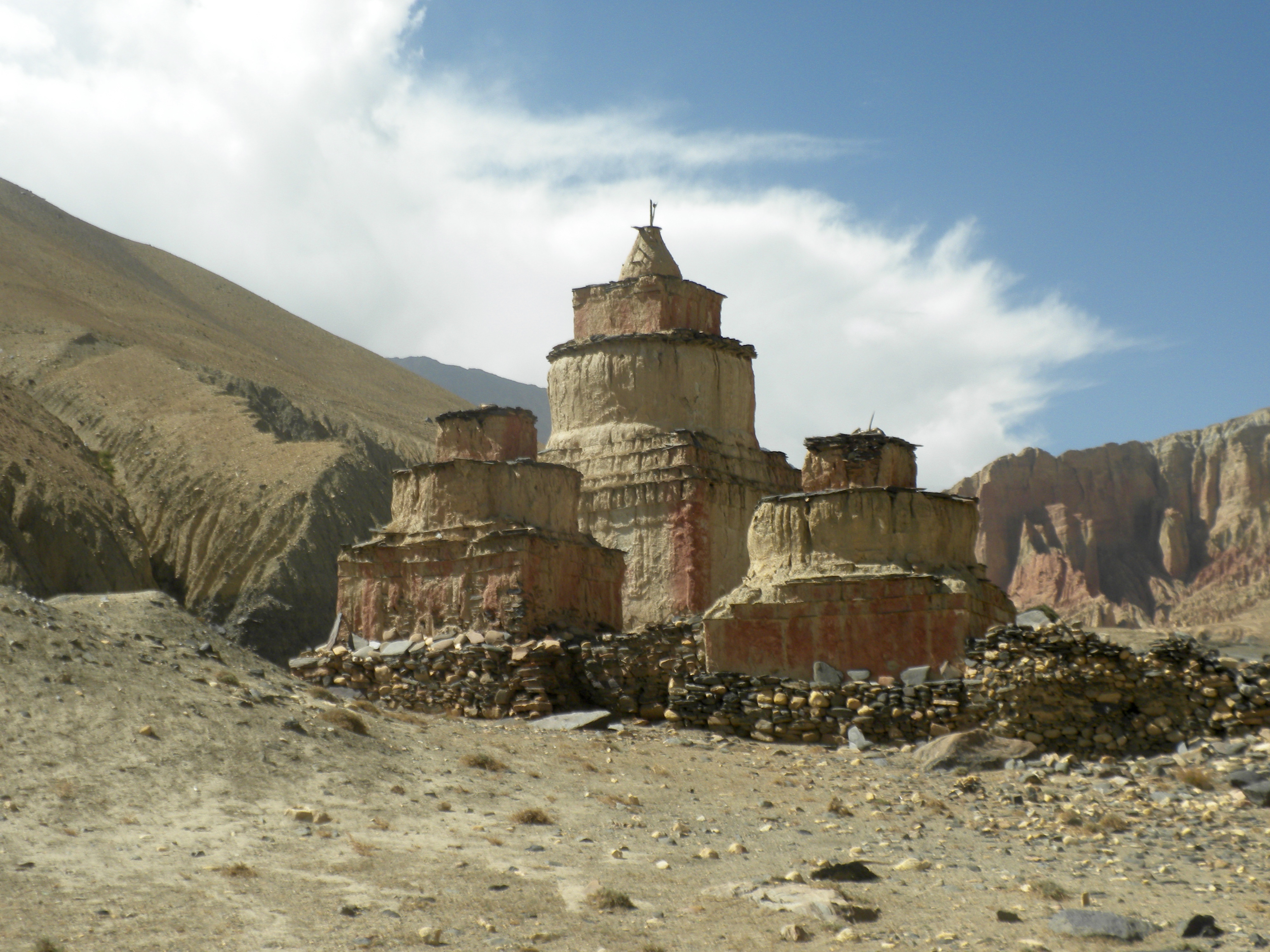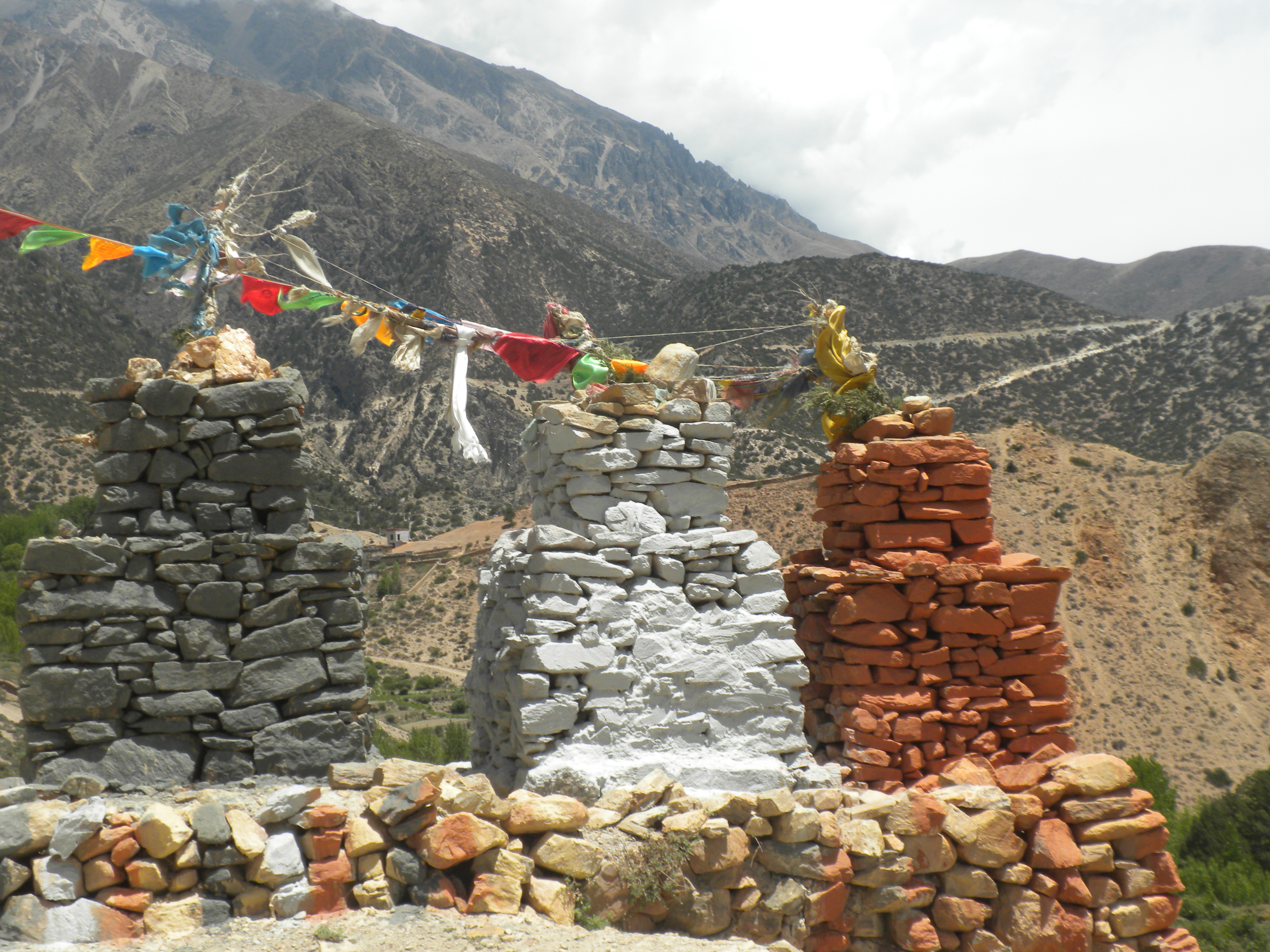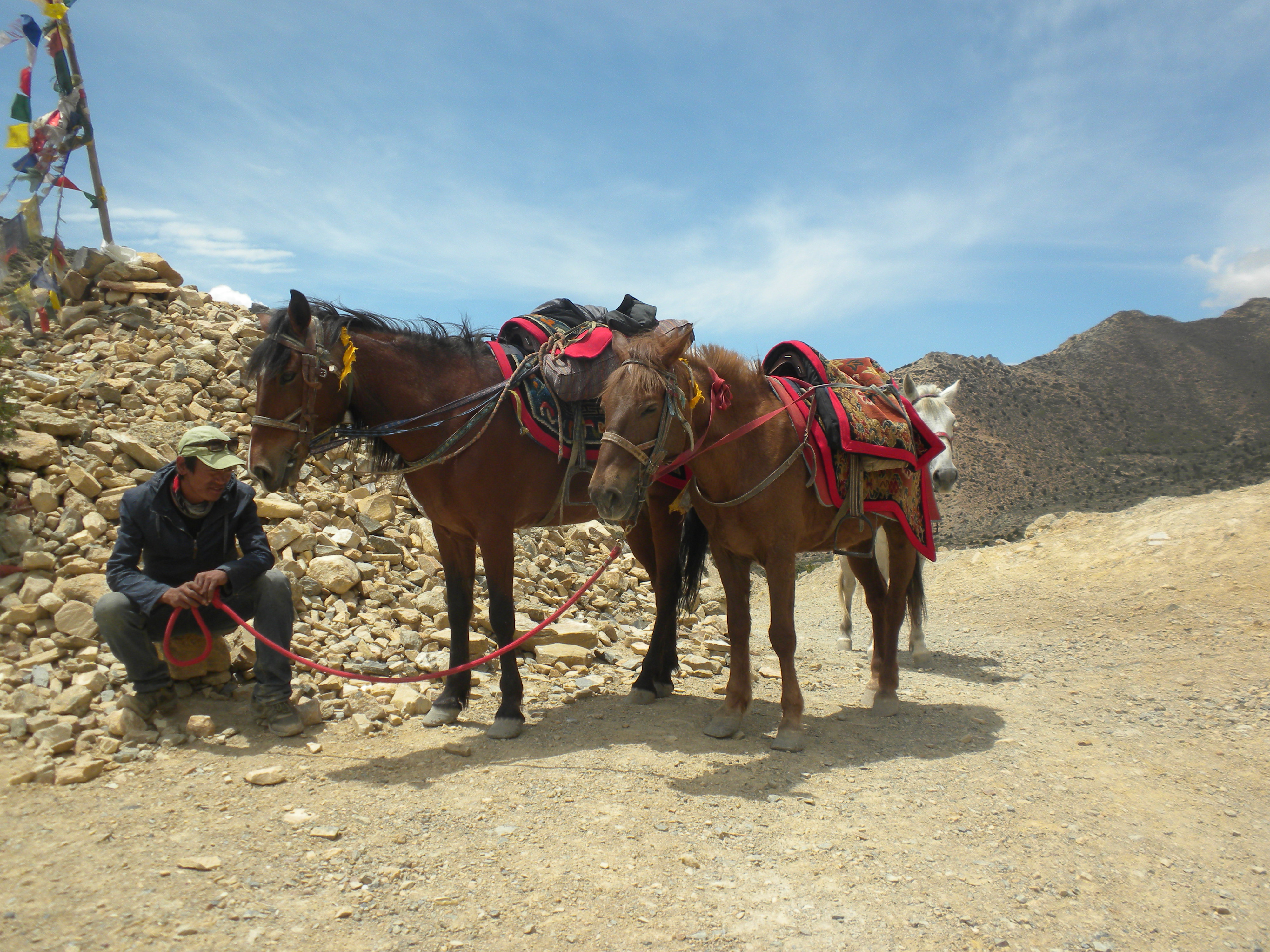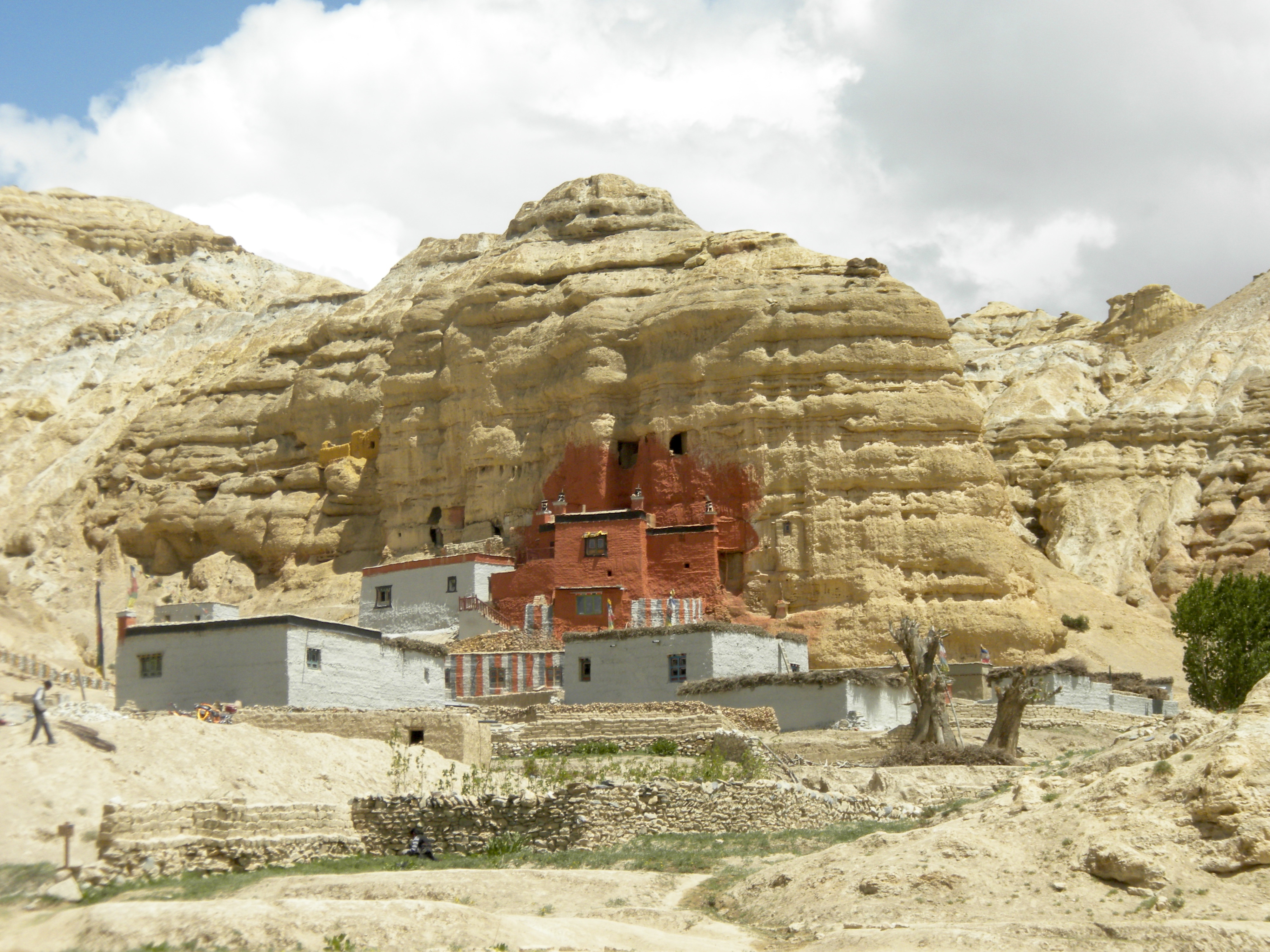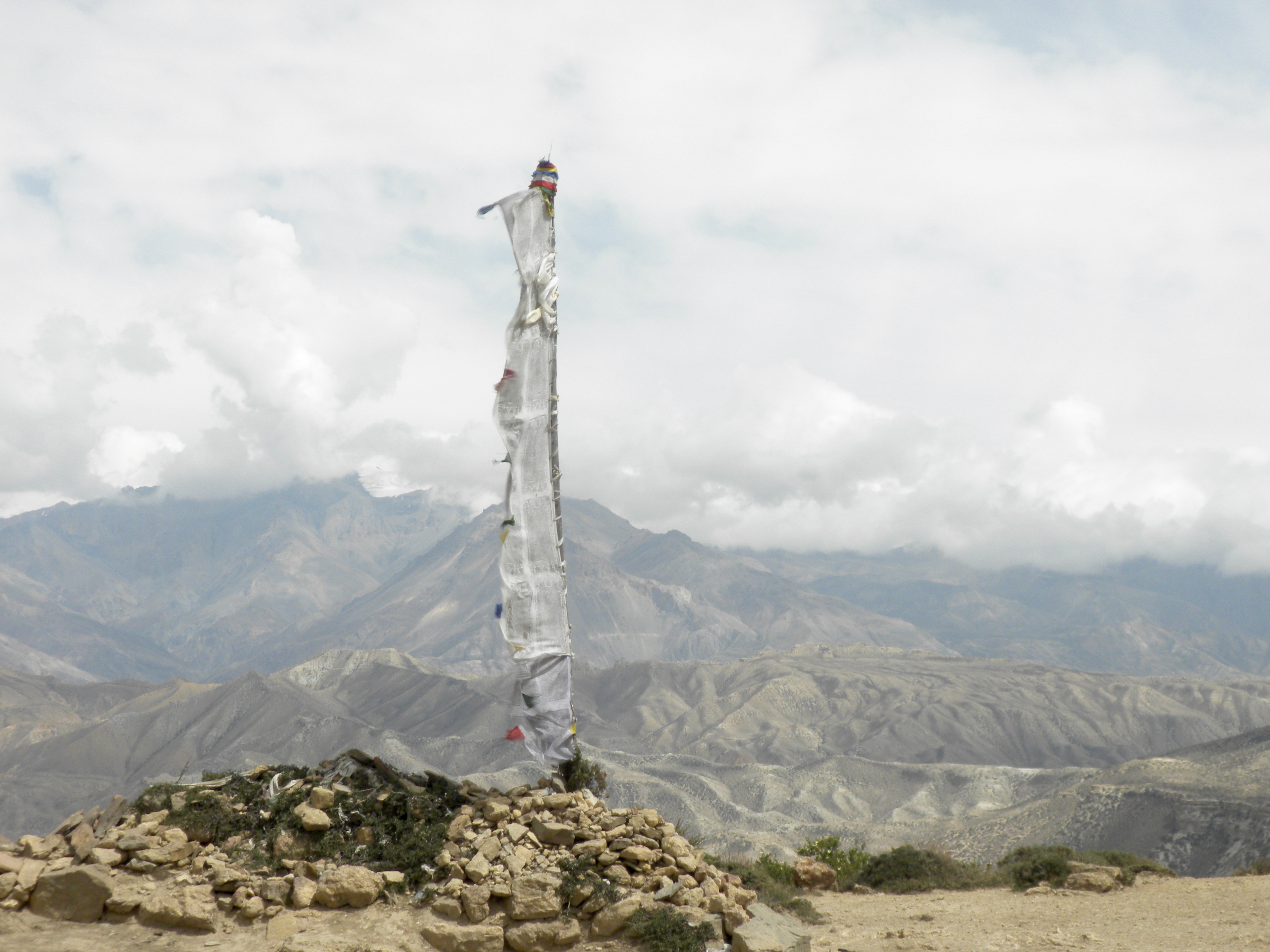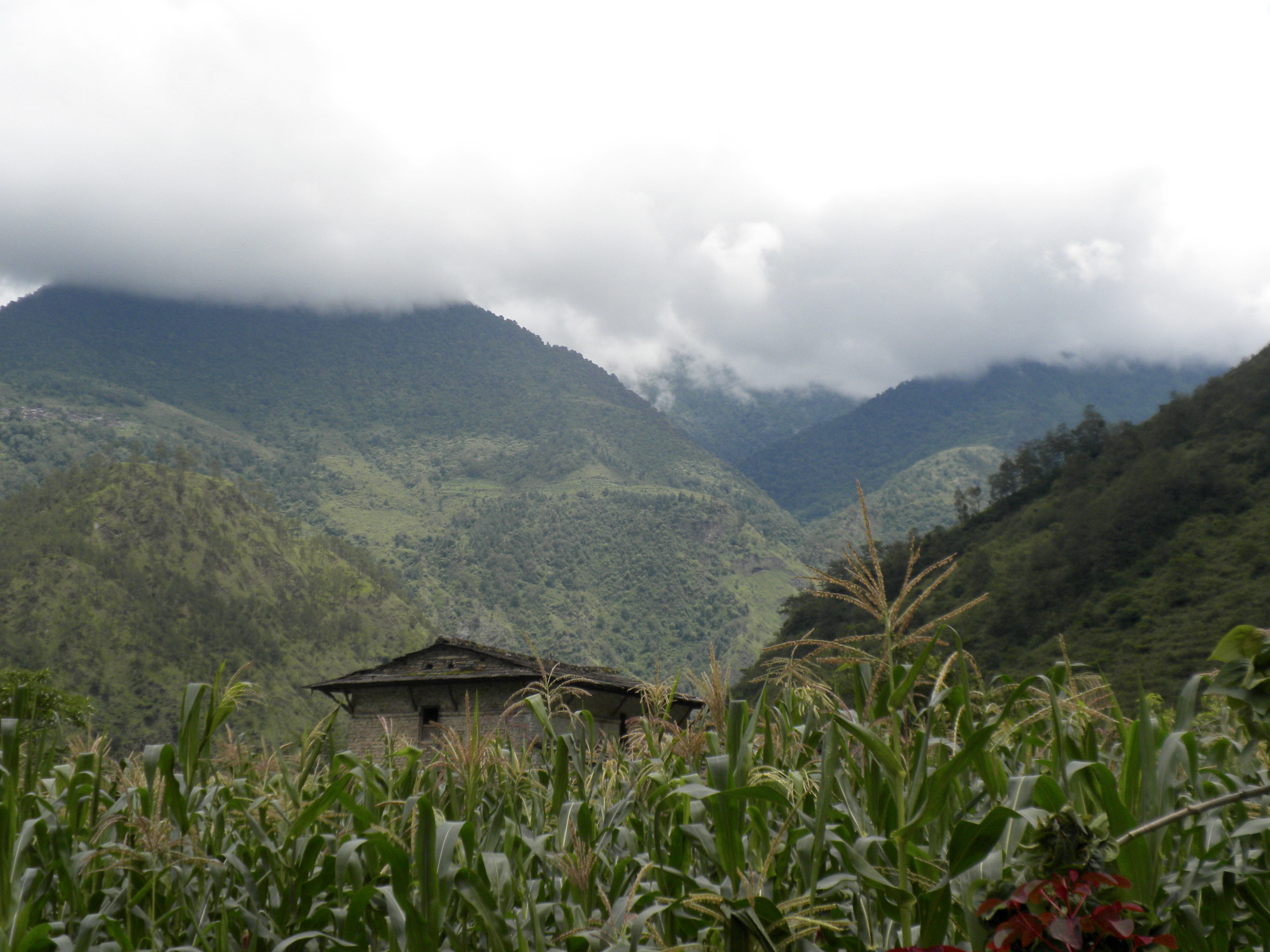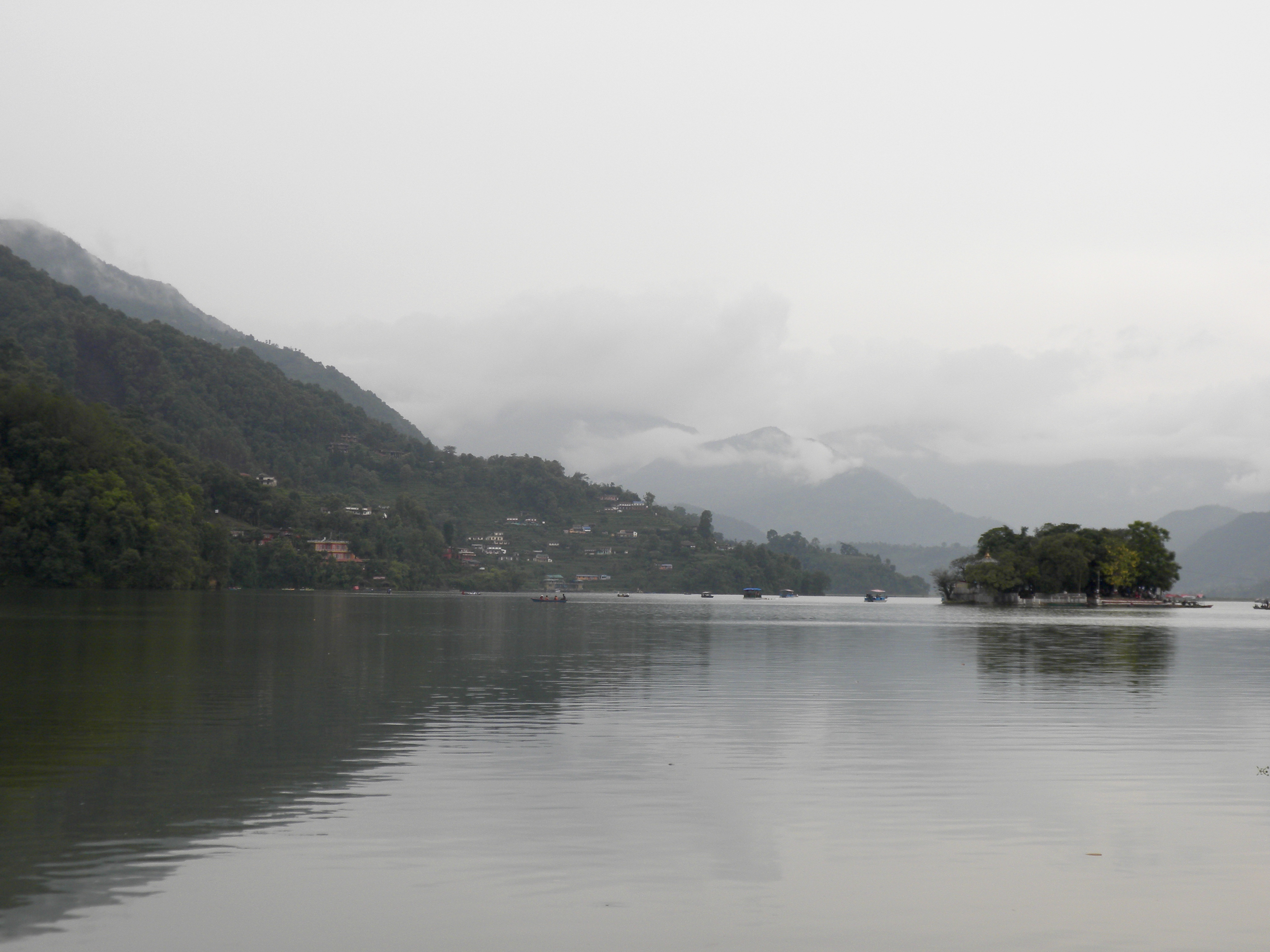I rarely cry. And yet, I found myself standing outside of Tribhuvan International Airport with tears on my face, the sun setting behind the hills surrounding Kathmandu. Maybe it was the sun shining in my eyes that brought forth the tears. Or perhaps it was that the time had come to say our final goodbyes to Nepal and to the new friends we had made over the last month. The separation of that moment was one which would reverberate in my thoughts for months, inhibiting me from fully returning to my life in the United States. That was three years ago.
***
“Good morning Char-lie. Good morning George. Tea? Washing Water? Hehehe.” Pasang’s voice echoed across the camp. Students groggily zipped open their tent flaps to reveal the Nepali staff, grinning in the morning light. Over the course of a 14-day trek through the Kingdom of Mustang, we had become close to our guides, and many of us called them our friends.
This evolution of friendship happened slowly at first, as we navigated language barriers and laughed about miscommunications. Then it happened quickly, as we walked for hours on the trail, learning about each other’s lives and sharing songs. We learned that Chandra had a daughter our age, that Karma was in a movie, that Abu used to be a monk.
We had made a bonfire in the city of Lo and danced as a group, students and staff in the circle together. When our energy ran out, we lay on the grass and looked at the stars. The moon was different here, I realized. All those stories about looking up and seeing the same moon were lies.
This realization added to my hopelessness upon arriving at the airport.
***
Three years later, standing on the beach in Mirissa, Sri Lanka, I have no tears. After two weeks of leading a college trip around the country and once again becoming close to the local staff, my eyes remain dry. The similarities between the two trips continually caught me off guard, especially when it came to making local friends. So what changed? Am I now just a robot who was so damaged by my experience three years ago that I no longer feel anything? I would like to think that’s not the case.
My tears that evening in Kathmandu were out of a fear that I would never see the place or the people again, that I would never be able to return. The tears didn’t stop at the airport, either. They followed me onto the plane, and back into my home in Vermont. But seriously, I never cry.
Since that goodbye at Tribhuvan International Airport, “goodbye” has become “until next time.”
It’s all about the possibility of return. If this exists, then whether or not there is a next time becomes irrelevant. Of course, this requires a position of privilege which allows for continued opportunities. World tourism is growing more than ever, and travelers are bound to make friends as they adventure. Making friends is inevitably followed by leaving friends, both at home and abroad. With the possibility of return, however, the leaving becomes easier. With this shift in thinking, parting moments become less final, more hopeful. Fear of the future dissipates. Thus, life moves forward, rather than being held hostage in past memories.
Joining the Sri Lankan staff for a final tea in the hotel lobby, I feel only gratitude for our time together. The moment remains bittersweet, and yet a peace has settled over all of us at the table. We send the bus off with a wave, but not a second hug. It seems almost informal, open-ended. No one utters a farewell.
Accepting separation in this way does not make that moment any less significant, or diminish the memories leading up to it. The focus instead becomes the moments together, in the present, rather than the moments apart. I sip the overly sweetened tea and smile at the experience of sharing it with Thilan and Yamuna and Anura and Sena, not thinking 10 minutes into the future when they will be gone. The goal, for me, is to acknowledge and accept the moment, to feel whatever feelings I have, and to continue onwards.
***
Three years ago, unfolding myself from the back of a jeep after seven hours of bouncing down the dirt road towards Pokhara, Nepal, I joined Pasang in the evening monsoon. We stood amidst the downpour, stretching our legs and looking at the seemingly endless lines of halted cars around us in the growing darkness. A reluctant smile appeared at the feeling of rain, my first all day. Eventually, the cold started to sink in, and we returned to the dry trunk of the jeep. When the line of cars began to move at last, and I was drifting off into another nap, Pasang chuckled and said “thank you for these sweet remembers.”
I now think of this moment whenever I say “until next time.” Thank you for your time, for these memories, for being present in this moment with me. I will remember these things until we meet again, whenever that may be.
These farewells, and the friendships proceeding them, inform my every-day life. I think about those friends often, always with joy that I had the chance to know them rather than sorrow in their absence. In returning to Nepal earlier this year, I proved to myself that I can create a next time. More importantly, I have learned over the last three years that ruminating too long on a farewell diminishes the moments before and after.
